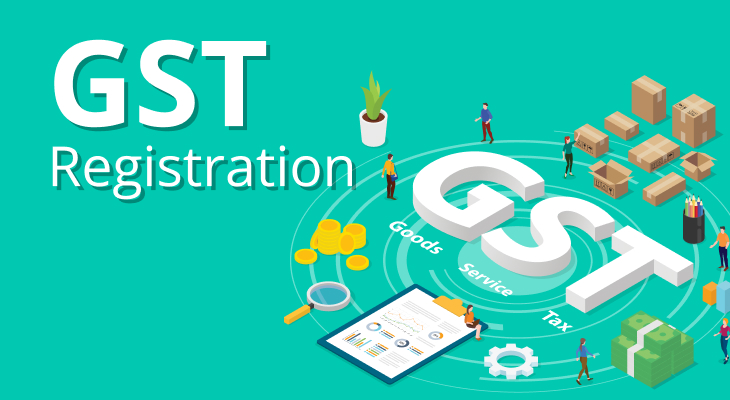Cost effective Choices for the Best GST Registration Services in Singapore
Cost effective Choices for the Best GST Registration Services in Singapore
Blog Article
From Beginning To End: The Ultimate Roadmap to GST Registration for Organizations Looking For Financial Security
Navigating the complexities of Product and Services Tax (GST) registration is a crucial step for businesses aiming for monetary security. Breaking down the roadmap right into convenient steps can improve the registration journey for services looking to improve their economic standing.
Understanding GST Fundamentals
Delving right into the basic concepts of Item and Provider Tax (GST) is crucial for obtaining an extensive understanding of its implications on services and the economy. GST is a value-added tax obligation imposed on many goods and solutions for domestic consumption. It has changed several indirect taxes that existed in the pre-GST period, improving the tax obligation structure and improving ease of doing company in India. Under the GST system, both items and services are exhausted at a specific price, which is determined based on their classification. Services are required to sign up for GST if their yearly turn over goes beyond the threshold restriction set by the government. Input Tax Credit Score (ITC) is a substantial function of GST, allowing companies to assert credit score for tax obligations paid on inputs, decreasing the total tax burden. Understanding the basics of GST is important for organizations to abide by tax guidelines, manage their finances successfully, and add to the nation's economic development by taking part in a clear tax obligation system.
Eligibility Requirements for Enrollment
To register for GST, services need to satisfy specific eligibility criteria established by the government. The key qualification need is that any service associated with the supply of items or services with a yearly accumulation turn over over the threshold limitation established by the authorities should register for GST. Since the existing policies, the threshold restriction for GST enrollment is a yearly aggregate turnover of 40 lakhs for companies running within a state, with the exception of unique classification states where the limit is 20 lakhs. In addition, specific businesses are called for to sign up for GST irrespective of their turn over, such as interstate distributors, laid-back taxed individuals, and companies accountable to pay tax obligation under the reverse fee mechanism. It is critical for businesses to extensively examine their turn over and transaction types to determine their GST registration commitments accurately. Failing to register for GST when eligible can result in fines and lawful repercussions, making it necessary for organizations to follow the defined eligibility criteria.
Records Needed for Registration
Having actually satisfied the eligibility requirements for GST enrollment, businesses need to now ensure they have the requisite records in position to proceed with the enrollment procedure successfully. The documents needed for GST registration normally consist of evidence of service constitution, such as partnership deed, registration certification, or incorporation certification for various kinds of services. In addition, companies need to supply papers establishing the primary place of company, such as a rental agreement or electrical energy costs. Frying pan card of business, along with the identification and address proof of promoters/partners/directors, read this post here are crucial for confirmation functions. Savings account declarations, in addition to canceled cheques or a duplicate of the financial institution passbook, are needed to verify the financial information given throughout enrollment. Furthermore, companies need to have digital trademarks ready for the accredited signatory. Making certain all these records are arranged and easily available will certainly accelerate the GST registration procedure, allowing businesses to follow tax laws perfectly.
Step-by-Step Registration Process
Starting the GST registration procedure includes a collection of structured actions to guarantee a certified and smooth registration for companies. The initial step is to check out the GST site and complete the registration kind with exact details of business entity. Following this, the applicant gets a Temporary Referral Number (TRN) which is used to return to the application procedure if it's not completed in one go.
Next, all required files based on the checklist provided by the GST portal demand to be submitted. These files typically include proof of business address, identification and enrollment evidence of promoters, financial statements, and company entity's PAN card.

Post-Registration Compliance Guidelines

Conclusion
In conclusion, companies seeking financial stability has to understand the essentials of GST, fulfill qualification standards, collect needed files, adhere to the step-by-step registration procedure, and conform with post-registration standards - Best GST registration services in Singapore. By sticking to these actions, services can make sure compliance with tax obligation regulations and maintain monetary stability over time
In addition, particular services are called for to register for GST regardless of their turn over, such as interstate providers, informal taxable persons, and services accountable to pay tax under the reverse charge device.Having actually met the qualification criteria for GST registration, services should currently guarantee they have the requisite records in location to proceed with the enrollment process effectively. The papers required for GST registration normally include evidence of organization constitution, look these up such as collaboration action, enrollment certificate, or incorporation certificate for different kinds of services. In addition, businesses need to offer records establishing the principal place of company, such as a rental agreement or electrical energy expense.Beginning the GST registration process entails a series of organized actions to make certain a compliant and seamless registration for organizations.
Report this page